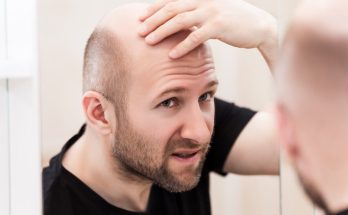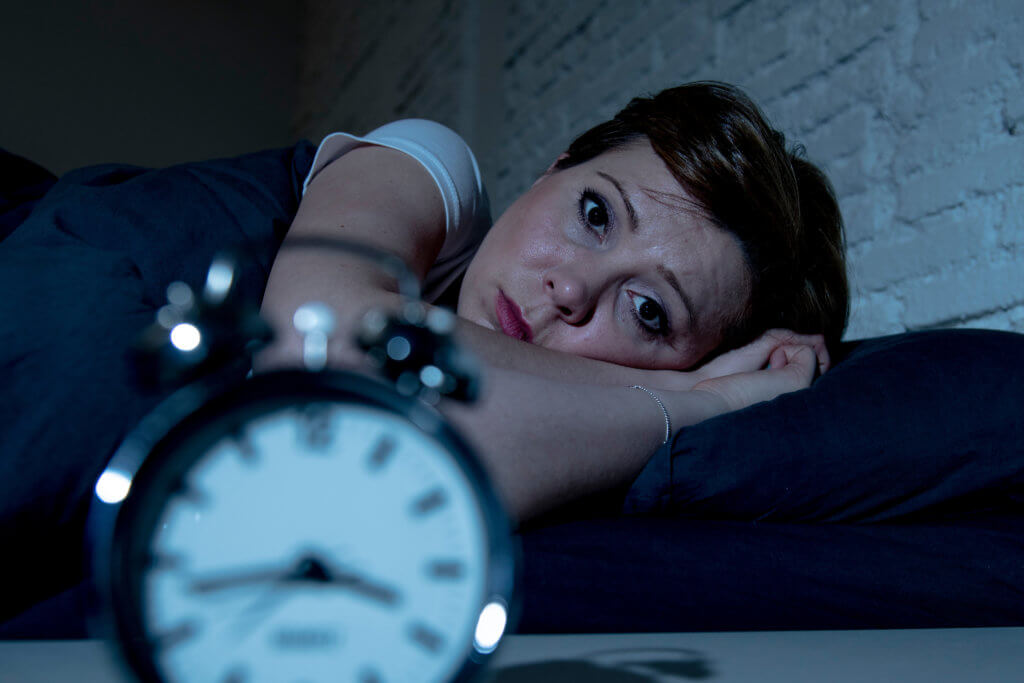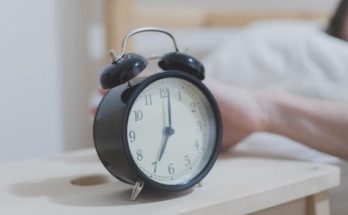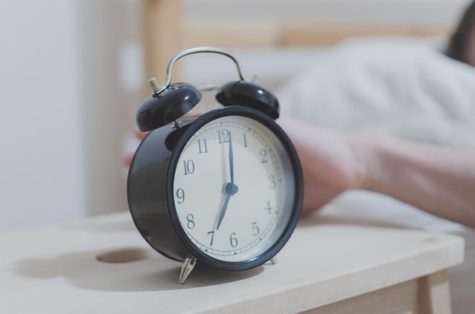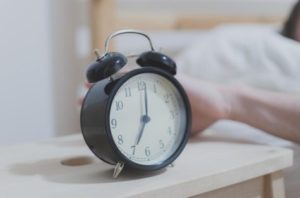
(Credit: Ilya Andriyanov/Shutterstock)
HANGZHOU, China — Intermittent fasting has become a popular wellness trend promising improved metabolic health, but a new study finds there may be a surprising side-effect to restricted eating — less hair. Researchers have discovered that fasting might put the brakes on hair regeneration in both mice and people.
The study, published in the journal Cell, uncovered a fascinating biological mechanism that could potentially lead to similar problems among humans. Led by stem cell biologist Bing Zhang from Westlake University in China, the research team found that intermittent fasting inhibited hair regrowth among mice, which have a much higher metabolism than people. With that in mind, scientists believe the hair-stunting effect may be less severe among human dieters.
In their experiments, mice subjected to strict eating schedules — either restricting food to an eight-hour window each day or alternating between feast and fast days — showed significantly delayed hair regeneration compared to mice with unlimited food access. While normal mice regrew most of their hair within 30 days, fasting mice took up to 96 days to show partial regrowth.
The culprit? Hair follicle stem cells that struggle to adapt to metabolic changes. When forced to switch from using glucose to fat as an energy source, these cells become overwhelmed by oxidative stress. The result is a process called apoptosis — essentially, the stem cells self-destruct when they can’t handle the metabolic switch.
“During fasting, adipose tissue starts to release free fatty acids, and these fatty acids enter the HFSCs that were recently activated, but these stem cells don’t have the right machinery to use them,” Zhang explains in a media release.

Intriguingly, the researchers didn’t stop at mouse models. A small clinical trial with 49 young adults showed that an extreme 18-hour daily fasting regime reduced hair growth speed by 18%.
“The human population is very heterogeneous, so the effects might be different for different people,” Zhang cautions.
The good news? The study found that antioxidants might help. Both topical vitamin E and genetic interventions that boosted antioxidant capacity helped hair follicle stem cells survive the fasting period.
“We don’t want to scare people away from practicing intermittent fasting because it is associated with a lot of beneficial effects—it’s just important to be aware that it might have some unintended effects,” Zhang emphasizes.
For those committed to intermittent fasting, the researcher suggests being mindful of potential hair growth impacts. Future research will explore how fasting affects stem cells in other body systems, potentially uncovering more nuanced insights into this popular dietary approach.
The takeaway? Intermittent fasting isn’t a one-size-fits-all solution. As with any health trend, individual responses can vary, and it’s always wise to consult healthcare professionals before making significant dietary changes.
Methodology
The study investigated the effects of intermittent fasting on hair follicle regeneration. Researchers used two popular intermittent fasting regimens on mice: 16/8 time-restricted feeding (TRF), where daily food consumption is confined to an 8-hour window followed by 16 hours of fasting, and alternate-day fasting (ADF), consisting of alternating 24-hour periods of fasting and unrestricted eating. The effects of these regimens were studied using adult C57BL/6 mice starting from postnatal day 60, corresponding with the hair follicles’ telogen phase. Hair regrowth was monitored over 96 days, with metabolic health indicators such as glucose tolerance also assessed.
Key Results
The study revealed that both TRF and ADF significantly impaired hair follicle regeneration in mice, with only partial hair regrowth observed by the end of the 96-day treatment period. Histological analysis showed that hair follicles in fasting mice remained in the extended telogen/early anagen phase without producing new hair shafts. Despite the fasting-induced inhibition on hair regeneration, intermittent fasting improved metabolic health as evidenced by enhanced glucose tolerance in the mice.
Study Limitations
A limitation of the study is that its findings primarily relate to mouse models and may not directly apply to humans without further investigation. The study did not explore whether the same fasting regimens could inhibit hair growth in humans, nor did it examine if different types or durations of fasting might yield different outcomes. Additionally, the study primarily focused on hair follicles and did not address how intermittent fasting might affect other types of stem cells or tissues.
Discussion & Takeaways
This study underscores a potential side effect of intermittent fasting regimens on hair follicle regeneration. While intermittent fasting is known for its benefits in improving metabolic health, it appears to also inhibit the regenerative capacity of hair follicles. This inhibition is mediated through the selective induction of apoptosis in activated hair follicle stem cells (HFSCs), independent of calorie reduction or circadian rhythm changes. Key to this process is the activation of interorgan communication between adrenal glands and dermal adipocytes, which disrupts the metabolic environment of HFSCs and leads to their apoptosis.
Funding & Disclosures
This study was funded in part by grants from the National Natural Science Foundation of China (project 32170850 to B.Z.), the Key R&D Program of Zhejiang (2024SSYS0031), the Westlake Laboratory of Life Sciences and Biomedicine, the Research Center for Industries of the Future (RCIF), and the Center of Synthetic Biology and Integrated Bioengineering at Westlake University. No conflicts of interest or competing financial interests were declared by the authors.
